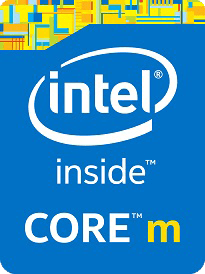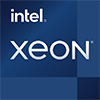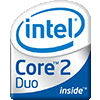
Intel Core m3-7Y30 Benchmark, test e specifiche
Ultimo aggiornamento:
Intel Core m3-7Y30 è stato rilasciato in Q3/2016 e ha 2 core. Il processore può elaborare 4 thread contemporaneamente e utilizza una scheda madre con il socket BGA 1515. Nel benchmark Geekbench 5, Intel Core m3-7Y30 ha ottenuto un risultato di 675 punti (single-core) o 1.387 punti (multi -nucleo).

| Cognome: | Intel Core m3-7Y30 |
|---|---|
| Famiglia: | Intel Core M (16) |
| Gruppo CPU: | Intel Core M 7 (2) |
| Architettura : | Kaby Lake Y |
| Segmento: | Mobile |
| Generazione: | 7 |
| Predecessore: | -- |
| Successore: | -- |
CPU Cores e frequenza di base
Il Intel Core m3-7Y30 ha 2 core. La frequenza di clock di Intel Core m3-7Y30 è 1,00 GHz (2,60 GHz). È possibile effettuare una valutazione iniziale delle prestazioni utilizzando il numero di core della CPU.
| CPU Cores / Threads: | 2 / 4 |
|---|---|
| Architettura principale: | normal |
| Cores: | 2x |
| Hyperthreading / SMT: | Si |
|---|---|
| Overclocking: | No |
| Frequenza: | 1,00 GHz |
| Turbo Frequenza (1 Core ): | 2,60 GHz |
| Turbo Frequenza (2 Cores): | 2,00 GHz |
Grafica interna
Intel Core m3-7Y30 ha una grafica integrata che il sistema può utilizzare per riprodurre in modo efficiente i video, ad esempio. Intel Core m3-7Y30 ha Intel HD Graphics 615 installato, che ha 24 multiprocessori di streaming (192 shader).
| nome GPU: | Intel HD Graphics 615 |
|---|---|
| Frequenza GPU : | 0,30 GHz |
| GPU (Turbo ): | 0,90 GHz |
| Unità di esecuzione: | 24 |
| Shader: | 192 |
| Hardware Raytracing: | No |
| Data di lancio : | Q2/2016 |
| Max. visualizzazioni: | 3 |
|---|---|
| Generation: | 9.5 |
| Direct X: | 12 |
| Tecnologia : | 14nm |
| Max. GPU Memoria: | 16 GB |
| Frame Generation: | No |
Hardware codec support
I processori con grafica integrata possono elaborare più velocemente utilizzando questi codec video. Il supporto per i codec moderni può aumentare significativamente l'efficienza del sistema durante la riproduzione video.
| h265 / HEVC (8 bit): | Decodificare / Codificare |
|---|---|
| h265 / HEVC (10 bit): | Decodificare / Codificare |
| h264: | Decodificare / Codificare |
| VP8: | Decodificare / Codificare |
| VP9: | Decodificare / Codificare |
| AV1: | No |
|---|---|
| AVC: | Decodificare / Codificare |
| VC-1: | Decodificare |
| JPEG: | Decodificare / Codificare |
Memoria & PCIeIntel Core m3-7Y30 supporta un massimo di 16 GB memoria. A seconda della scheda madre, il processore può utilizzare un massimo di 2 (Dual Channel) canali di memoria. Ciò si traduce in una larghezza di banda massima della memoria principale di 29,8 GB/s. |
|
| Tipo di memoria : | Banda di memoria: |
|---|---|
| LPDDR3-1866 DDR3L-1600 | 29,8 GB/s 25,6 GB/s |
| Max. Memoria: | 16 GB |
| Canali di memoria : | 2 (Dual Channel) |
| ECC: | No |
| PCIe: | 3.0 x 10 |
| PCIe Larghezza di banda: | 9,9 GB/s |
Gestione termicaIntel Core m3-7Y30 ha un TDP di 4.5 W. Sulla base del TDP, il produttore del sistema può e deve adattare la soluzione di raffreddamento al processore. |
|
|---|---|
| TDP (PL1 / PBP): | 4.5 W |
| TDP (PL2): | -- |
| TDP up: | 7 W |
| TDP down: | 3.75 W |
| Tjunction max.: | 100 °C |
Dettagli tecnici
La produzione moderna riduce il calore disperso di un processore e ne aumenta l'efficienza. Intel Core m3-7Y30 è realizzato in 14 nm e ha 4,00 MB cache.
| Tecnologia : | 14 nm |
|---|---|
| Design a chip: | Monolitico |
| Presa: | BGA 1515 |
| L2-Cache: | -- |
| L3-Cache: | 4,00 MB |
| AES-NI: | Si |
| Sistemi operativi: |
| Virtualizzazione: | VT-x, VT-x EPT, VT-d |
|---|---|
| Set di istruzioni (ISA): | x86-64 (64 bit) |
| Estensioni ISA: | SSE4.1, SSE4.2, AVX2 |
| Data di lancio : | Q3/2016 |
| Prezzo di rilascio: | 281 $ |
| Numero di parte: | -- |
| Documenti: | Scheda tecnica |
Valuta questo processore
Risultati di benchmark

I risultati del benchmark per Intel Core m3-7Y30 sono stati attentamente controllati da noi. Pubblichiamo solo risultati di benchmark che sono stati creati da noi o che sono stati inviati da un visitatore e poi controllati da un membro del team. Tutti i risultati sono basati e rispettano le nostre linee guida di benchmark.
Schermate:
Schermate:
- Geekbench 5 (Galaxy Boom 10,6 SM-W620)
- Cinebench R23 (Galaxy Boom 10,6 SM-W620)
- Cinebench R20 (Galaxy Boom 10,6 SM-W620)
- CPUz 17 (Galaxy Boom 10,6 SM-W620)
Cinebench R23 (Single-Core)
Cinebench R23 è il successore di Cinebench R20 ed è anch'esso basato su Cinema 4D. Cinema 4D è un software usato a livello mondiale per creare forme in 3D. Il test single-core utilizza solo un nucleo elaborativo della CPU. A tal fine, il numero di nuclei elaborativi o la capacità di hyperthreading non sono rilevanti.

|
Intel Celeron N4500
2C 2T @ 2,80 GHz |
||

|
Intel Celeron N5100
4C 4T @ 2,80 GHz |
||

|
Intel Core 2 Quad Q9650
4C 4T @ 3,00 GHz |
||
|
|
Intel Core m3-7Y30
2C 4T @ 2,60 GHz |
||

|
Intel Xeon E5450
4C 4T @ 3,00 GHz |
||

|
Intel Xeon X3440
4C 8T @ 2,93 GHz |
||

|
Intel Celeron J4125
4C 4T @ 2,70 GHz |
||
Cinebench R23 (Multi-Core)
Cinebench R23 è il successore di Cinebench R20 ed è anch'esso basato su Cinema 4D. Cinema 4D è un software usato a livello mondiale per creare forme in 3D. Il test multi-core coinvolge tutti i nuclei elaborativi della CPU e si avvale del hyperthreading.

|
Intel Core i7-4650U
2C 4T @ 2,90 GHz |
||

|
Intel Celeron N4500
2C 2T @ 2,40 GHz |
||

|
Intel Pentium Gold 4417U
2C 4T @ 2,30 GHz |
||
|
|
Intel Core m3-7Y30
2C 4T @ 2,00 GHz |
||

|
Intel Pentium 2117U
2C 2T @ 1,80 GHz |
||

|
Intel Core2 Duo E6600
2C 2T @ 2,40 GHz |
||

|
AMD Athlon II X2 270u
2C 2T @ 2,00 GHz |
||
Geekbench 5, 64bit (Single-Core)
Geekbench 5 è un benchmark multi-piattaforma che usa in modo intensivo la memoria del sistema.Il test single-core utilizza solo un nucleo elaborativo della CPU. A tal fine, il numero di nuclei elaborativi o la capacità di hyperthreading non sono rilevanti.

|
Intel Atom x6425E
4C 4T @ 3,00 GHz |
||

|
Intel Core i5-2400S
4C 4T @ 3,30 GHz |
||

|
Intel Core i5-2405S
4C 4T @ 3,30 GHz |
||
|
|
Intel Core m3-7Y30
2C 4T @ 2,60 GHz |
||

|
Qualcomm Snapdragon 7c+ Gen 3
8C 8T @ 2,40 GHz |
||

|
MediaTek Dimensity 1000L
8C 8T @ 2,20 GHz |
||

|
Intel Core i5-3230M
2C 4T @ 3,20 GHz |
||
Geekbench 5, 64bit (Multi-Core)
Geekbench 5 è un benchmark multi-piattaforma che usa in modo intensivo la memoria del sistema.Il test multi-core coinvolge tutti i nuclei elaborativi della CPU e si avvale del hyperthreading.

|
AMD Athlon II X4 740
4C 4T @ 3,70 GHz |
||

|
AMD Athlon Silver 3050C
2C 4T @ 2,30 GHz |
||

|
Intel Core i5-4350U
2C 4T @ 2,90 GHz |
||
|
|
Intel Core m3-7Y30
2C 4T @ 2,00 GHz |
||

|
Intel Pentium D1508
2C 4T @ 2,60 GHz |
||

|
Intel Celeron G4900T
2C 2T @ 2,80 GHz |
||

|
Intel Celeron N4100
4C 4T @ 2,40 GHz |
||
Geekbench 6 (Single-Core)
Geekbench 6 è un punto di riferimento per computer, notebook e smartphone moderni. Ciò che è nuovo è un utilizzo ottimizzato delle architetture CPU più recenti, ad esempio basate sul concetto big.LITTLE e combinando core CPU di diverse dimensioni. Il benchmark single-core valuta solo le prestazioni del core della CPU più veloce, il numero di core della CPU in un processore è irrilevante qui.

|
AMD Ryzen 3 2200U
2C 4T @ 3,40 GHz |
||

|
Intel Core i5-4310U
2C 4T @ 3,00 GHz |
||

|
Apple A10 Fusion
4C 4T @ 2,34 GHz |
||
|
|
Intel Core m3-7Y30
2C 4T @ 2,60 GHz |
||

|
Intel Pentium Gold G6400
2C 4T @ 4,00 GHz |
||

|
Samsung Exynos 1280
8C 8T @ 2,40 GHz |
||

|
Intel Core i5-5200U
2C 4T @ 2,70 GHz |
||
Geekbench 6 (Multi-Core)
Geekbench 6 è un punto di riferimento per computer, notebook e smartphone moderni. Ciò che è nuovo è un utilizzo ottimizzato delle architetture CPU più recenti, ad esempio basate sul concetto big.LITTLE e combinando core CPU di diverse dimensioni. Il benchmark multi-core valuta le prestazioni di tutti i core della CPU del processore. I miglioramenti del thread virtuale come AMD SMT o l'Hyper-Threading di Intel hanno un impatto positivo sul risultato del benchmark.

|
Intel Core i7-4500U
2C 4T @ 2,60 GHz |
||

|
Intel Core i5-2500T
4C 4T @ 2,30 GHz |
||

|
MediaTek Helio P90
8C 8T @ 2,20 GHz |
||
|
|
Intel Core m3-7Y30
2C 4T @ 2,00 GHz |
||

|
Intel Pentium G4560
2C 4T @ 3,50 GHz |
||

|
Intel Core i3-4000M
2C 4T @ 2,40 GHz |
||

|
Intel Core i7-870
4C 8T @ 2,93 GHz |
||
Cinebench R20 (Multi-Core)
Cinebench R20 è il successore di Cinebench R15 ed è anch'esso basato su Cinema 4D. Cinema 4D è un software usato a livello mondiale per creare forme in 3D. Il test multi-core coinvolge tutti i nuclei elaborativi della CPU e si avvale del hyperthreading.

|
AMD A6-5400K
2C 2T @ 3,80 GHz |
||

|
Intel Atom x7-E3950
4C 4T @ 1,60 GHz |
||

|
AMD A6-9225
2C 2T @ 2,60 GHz |
||
|
|
Intel Core m3-7Y30
2C 4T @ 2,00 GHz |
||

|
AMD Athlon 5150
4C 4T @ 1,60 GHz |
||

|
Intel Celeron N2930
4C 4T @ 2,16 GHz |
||

|
AMD A6-6400K
2C 2T @ 4,10 GHz |
||
iGPU - Prestazioni FP32 (GFLOPS a precisione singola)
Le prestazioni di calcolo teoriche dell'unità grafica interna del processore con precisione semplice (32 bit) in GFLOPS. GFLOPS indica quanti miliardi di operazioni in virgola mobile che l'iPPU può eseguire al secondo.

|
Intel Core i5-5300U
Intel HD Graphics 5500 @ 0,90 GHz |
||

|
Intel Core M-5Y51
Intel HD Graphics 5300 @ 0,90 GHz |
||

|
Intel Core M-5Y71
Intel HD Graphics 5300 @ 0,90 GHz |
||
|
|
Intel Core m3-7Y30
Intel HD Graphics 615 @ 0,90 GHz |
||

|
Intel Pentium Gold G7400TE
Intel UHD Graphics 710 @ 1,35 GHz |
||

|
Intel Pentium Gold G7400T
Intel UHD Graphics 710 @ 1,35 GHz |
||

|
Intel Pentium Gold G7400E
Intel UHD Graphics 710 @ 1,35 GHz |
||
Risultati stimati da PassMark CPU Mark
Alcune delle CPU elencate di seguito sono stati sottoposti a benchmarking da CPU-monkey. Tuttavia, la maggior parte delle CPU non sono state testate e i risultati sono stati stimati utilizzando una formula segreta di proprietà di CPU-monkey. Come tali, essi non riflettono con precisione i valori attuali di Passmark CPU Mark e non sono stati approvati da PAssMark Software Pty Ltd.

|
Intel Pentium Silver N5000
4C 4T @ 2,70 GHz |
||

|
Intel Celeron G5900T
2C 2T @ 3,20 GHz |
||

|
Intel Core i5-4258U
2C 4T @ 2,90 GHz |
||
|
|
Intel Core m3-7Y30
2C 4T @ 2,00 GHz |
||

|
Intel Core i7-4510U
2C 4T @ 2,70 GHz |
||

|
Intel Core i3-7020U
2C 4T @ 2,30 GHz |
||

|
Intel Core i7-3687U
2C 4T @ 3,30 GHz |
||
CPU-Z Benchmark 17 (Single-Core)
Il benchmark CPU-Z misura le prestazioni di un processore misurando il tempo impiegato dal sistema per completare tutti i calcoli del benchmark. Più velocemente viene completato il benchmark, maggiore è il punteggio.

|
Intel Core i5-4200U
2C 4T @ 2,30 GHz |
||

|
Intel Core i3-3110M
2C 4T @ 2,40 GHz |
||

|
Intel Core i3-5005U
2C 4T @ 2,00 GHz |
||

|
Intel Core i3-6006U
2C 4T @ 2,00 GHz |
||

|
AMD Phenom II X4 955
4C 4T @ 3,20 GHz |
||

|
Intel Core i3-4005U
2C 4T @ 1,70 GHz |
||
|
|
Intel Core m3-7Y30
2C 4T @ 2,00 GHz |
||
CPU-Z Benchmark 17 (Multi-Core)
Il benchmark CPU-Z misura le prestazioni di un processore misurando il tempo impiegato dal sistema per completare tutti i calcoli del benchmark. Più velocemente viene completato il benchmark, maggiore è il punteggio.

|
Intel Celeron E3300
2C 2T @ 2,50 GHz |
||

|
Intel Pentium E5200
2C 2T @ 2,50 GHz |
||

|
Intel Core2 Duo E6600
2C 2T @ 2,40 GHz |
||
|
|
Intel Core m3-7Y30
2C 4T @ 1,00 GHz |
||

|
Intel Celeron 4205U
2C 2T @ 1,80 GHz |
||

|
AMD A8-4500M
4C 4T @ 1,90 GHz |
||

|
Intel Pentium N3540
4C 4T @ 2,16 GHz |
||
Cinebench R15 (Single-Core)
Cinebench R15 è il successore di Cinebench 11.5 ed è anch'esso basato su Cinema 4D. Cinema 4D è un software usato a livello mondiale per creare forme in 3D. Il test single-core utilizza solo un nucleo elaborativo della CPU. A tal fine, il numero di nuclei elaborativi o la capacità di hyperthreading non sono rilevanti.

|
Intel Core i3-4130T
2C 4T @ 2,90 GHz |
||

|
Intel Pentium G2030
2C 2T @ 3,00 GHz |
||

|
Intel Xeon E3-1230L v3
4C 8T @ 2,80 GHz |
||
|
|
Intel Core m3-7Y30
2C 4T @ 2,60 GHz |
||

|
Intel Core i5-L16G7
5C 5T @ 3,00 GHz |
||

|
Intel Core M-5Y51
2C 4T @ 2,60 GHz |
||

|
Intel Core M-5Y70
2C 4T @ 2,60 GHz |
||
Cinebench R15 (Multi-Core)
Cinebench R15 è il successore di Cinebench 11.5 ed è anch'esso basato su Cinema 4D. Cinema 4D è un software usato a livello mondiale per creare forme in 3D. Il test multi-core coinvolge tutti i nuclei elaborativi della CPU e si avvale del hyperthreading.

|
AMD Phenom II X3 B77
3C 3T @ 3,20 GHz |
||

|
AMD Phenom II X4 900e
4C 4T @ 2,40 GHz |
||

|
Intel Celeron G4920
2C 2T @ 3,20 GHz |
||
|
|
Intel Core m3-7Y30
2C 4T @ 2,00 GHz |
||

|
Intel Celeron G5905T
2C 2T @ 3,30 GHz |
||

|
Intel Celeron G5900T
2C 2T @ 3,20 GHz |
||

|
Intel Celeron G5900E
2C 2T @ 3,20 GHz |
||
Benchmarks

Cinebench R23 (SC)
586 inserimenti
586 inserimenti

Cinebench R23 (MC)
565 inserimenti
565 inserimenti

Geekbench 5 (SC)
2.488 inserimenti
2.488 inserimenti

Geekbench 5 (MC)
2.461 inserimenti
2.461 inserimenti

Geekbench 6 (SC)
1.755 inserimenti
1.755 inserimenti

Geekbench 6 (MC)
1.703 inserimenti
1.703 inserimenti

Cinebench R20 (MC)
604 inserimenti
604 inserimenti

FP32 SP (iGPU)
2.026 inserimenti
2.026 inserimenti

PassMark CPU-Mark
2.392 inserimenti
2.392 inserimenti

CPU-Z Benchmark 17 (SC)
231 inserimenti
231 inserimenti

CPU-Z Benchmark 17 (MC)
733 inserimenti
733 inserimenti

Cinebench R15 (SC)
1.106 inserimenti
1.106 inserimenti

Cinebench R15 (MC)
1.101 inserimenti
1.101 inserimenti

Geekbench 3 (SC)
942 inserimenti
942 inserimenti

Geekbench 3 (MC)
938 inserimenti
938 inserimenti

Cinebench R11.5 (SC)
825 inserimenti
825 inserimenti

Cinebench R11.5 (MC)
836 inserimenti
836 inserimenti

Cinebench R11.5 iGPU
383 inserimenti
383 inserimenti
Confronti più popolari
Torna all'indice




